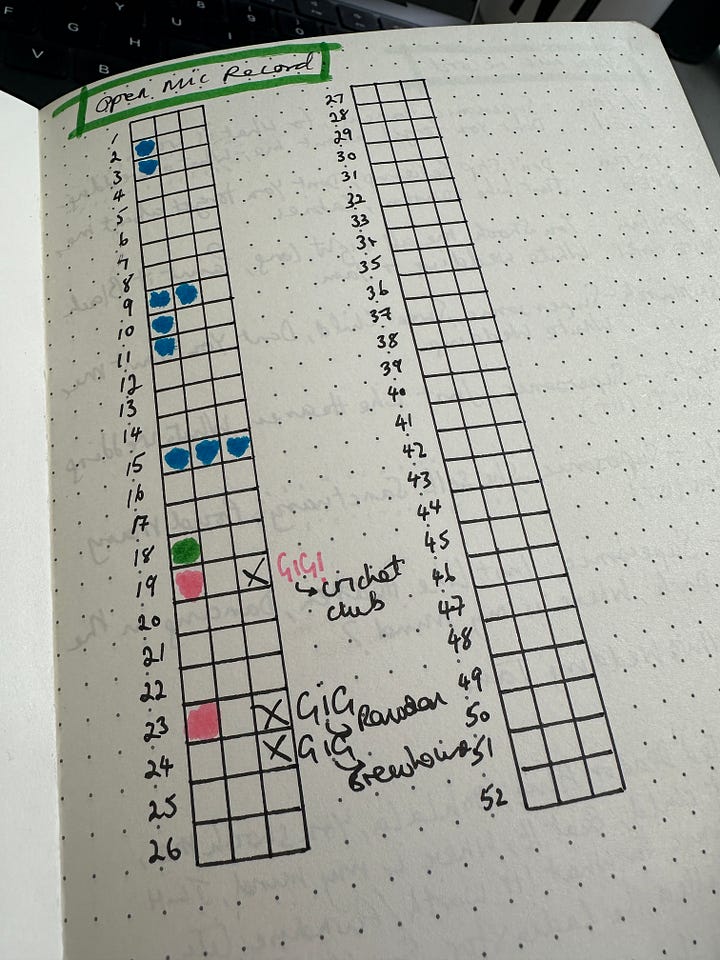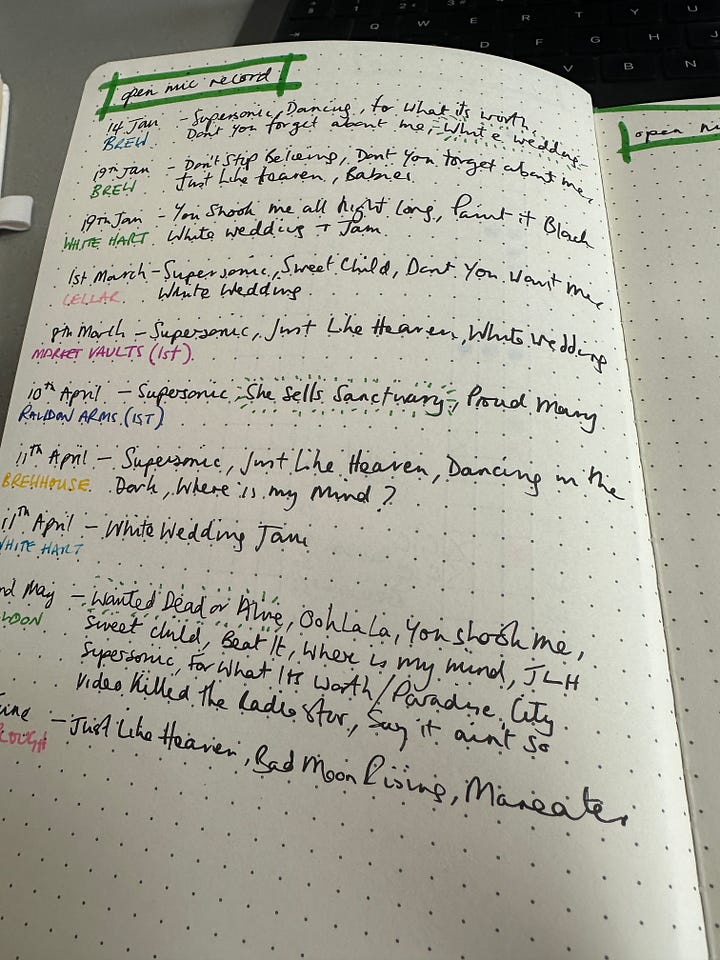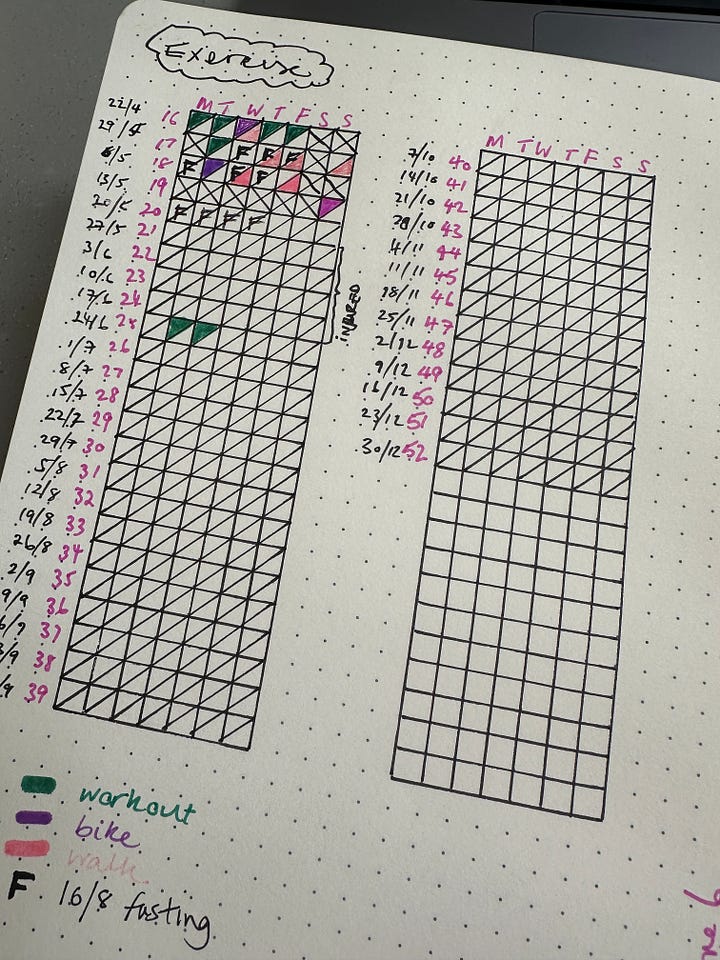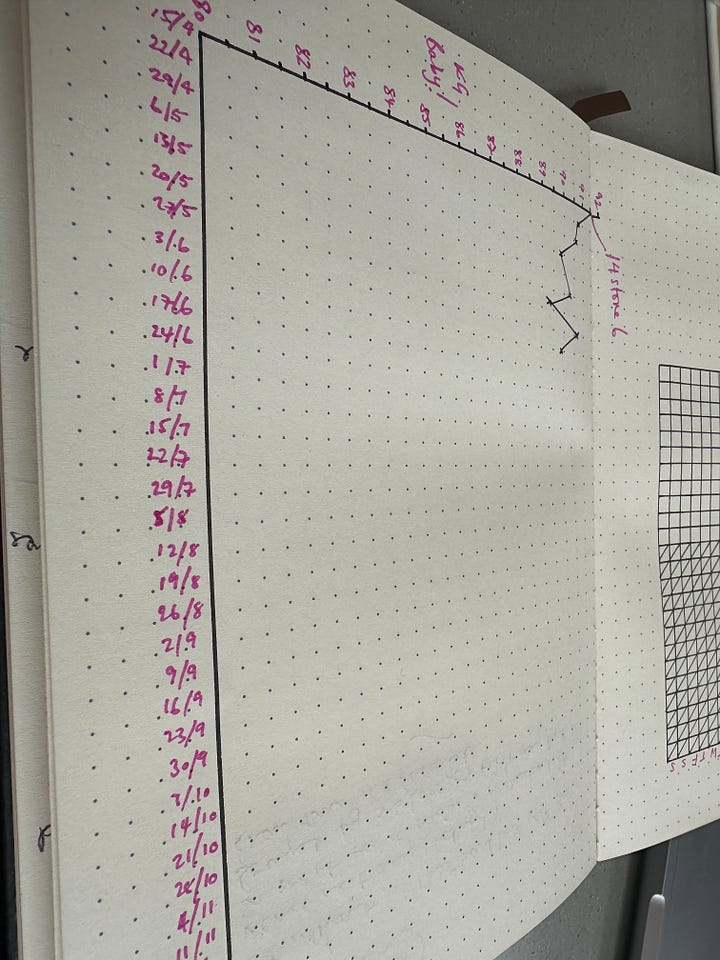We all have one.
The thing niggling away inside, that every so often rears its head and resides in the background of your thinking.
You’re afraid of doing it. But you want it, badly.
You see, underneath most fears is desire.
Ask yourself this way:
“What would I do, the thing I would love to do, if I wasn’t scared?”
Sometimes this can be dressed up in your head as “oh no, I’m not the sort of person who does that!” when really you’re telling yourself:
“I would LOVE to do that, but I’m afraid that x or y might happen.”
And then we start putting more false blockers in the way. Things that exist only as ‘maybes’ in your head when you let your mind run away with all the potential outcomes.
UNLOCK YOUR THINKING
Well, here’s 4 steps that might help you unlock that.
1 - Write down the thing you’d really like to do:
Whether that’s doing an abseil for charity, performing at an open mic, applying for a certain job, getting in touch with an old colleague you’ve not spoken to in years, putting out a LinkedIn post… anything that involves you stepping out of your comfort zone.
2 - Make it as real as you can:
What could be the positive result of your doing this thing?
How would you feel afterwards?
How would you know it went well?
Would you do it again?
What would you do differently next time?
3 - What would need to be true for you to do the thing?:
Write down all your blockers - but write them in the positive.
So say you really wanted to perform music in front of people but were scared in case people laughed, or you bummed chords and vocal notes, or you just froze and forgot everything?
The things you might write down include:
- I’d have practised and practised until I knew the song inside out.
- I’d be confident in my ability to entertain.
- I’d know the right places to perform.
- I’d have had someone tell me I’m good.
- I’d need a better musical instrument
Guess what? The last one is probably the biggest lie you’re telling yourself.
4 - Write down the practical steps to make those things true:
They could be:
- I’ve set up regular and consistent time in my calendar to practise.
- I’ve started taking regular music/singing lessons
- I’ve been along to 3 open mics to see how they run.
- I’ve got chatting with other musicians about the fact I’m scared to perform (this is truly owning it!).
You don’t have to go full bore straight away.
What SMALL steps can you take?
It could be to see if you can accompany someone on a song you both know, without you being plugged in. Or plug yourself in and see what happens.
It could be to just get really good and confident playing one song. Play that, and then get off. YOU DID IT! And you might make a mistake. Nerves’ll do that to you.
Everyone makes mistakes.
What can you apply this thinking to? What are you frightened of but want the most?
BUILD CONFIDENCE.
People talk about “taking baby steps” don’t they?
And babies, when they start to put one foot in front of the other, often fall over while they find their feet. Doing something new for the first time will usually be like that.
Be prepared to make mistakes, or need help, or get EVEN MORE scared in the moment.
But be safe in the knowledge that like a baby learning to walk, you too can get up again, and crack on regardless with your head held high.
AND you’ll have learned from the experience. You’ll have discovered pitfalls and trap doors you hadn’t thought of before, so next time you can be better prepared.
Just make the small steps, because small steps slowly build your resilience and that golden word - CONFIDENCE.
TAKE ACTION
If you’re reading this and it’s making your brain itch with the thing, take some action.
Even if you just write down the first list, really quickly, now.
The faster you take some action and commit it to paper, the more quickly it’s likely to manifest into something, and the less likely it is to sink back to a niggle.
EXTRA TIP
If you want to support yourself even more, create a way of recording your consistency with whatever it is you want to do more of.
A chart, a table, a tick list, whatever works for you. Here’s a few of the things I’ve been doing:




I’m tracking my open mic attendance and exercise. I want to be able to look back at the end of the year and see I’ve made some real progress. And that I’ve put the effort in.
I fear getting old and fat, my knees failing, and not being able to chase about after my grandchildren should I ever be fortunate enough to have them. I fear not being able to ride gnarly trails on my mountain bike. I used to fear going the rest of my life without having sung or played guitar in front of people again because I didn’t think I was good enough. I did a few gigs in my 20’s, but that was a long time ago. I absolutely cracked that fear that a couple of years ago after I started taking regular singing lessons.
So all the things I’ve suggested you do above are systemised versions of the things I’ve done. I’m still working on the exercise. In fact I’m still working on everything.
If it’s important enough to you you’ll find the time, resources, and energy. What would you have to say “no” to to be able to say “yes” to this? And remember, the odd thing about motivation is that it comes once you’ve done the thing - not before.
I did my first workout in a month yesterday as I’ve been having problems with my right knee. Finding the motivation was hard, but two days in and I’m feeling like I want to carry on.
I’m off to prepare for a Talent Acquisition round table thing I’m on at lunchtime, where we’ll be getting into all sorts of discussions about the state of the recruitment market, and how to present yourself to the market if you’re looking for work.
I’ve deliberately not made some half-arsed attempt to turn the ideas in this article into something more specifically to do with careers - I think you can do that yourself. Just think about how you can apply the thinking and methods to make step changes in your career and life.
Then take action and do something with it.
Phil




